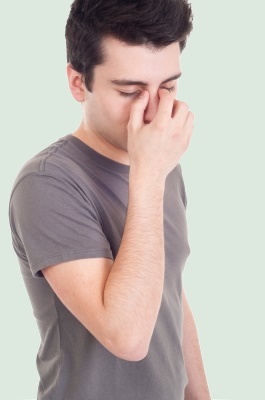Symptoms of Depression
The syptoms of depression can affect people in different ways. Depression may be experienced as anger, sadness, insomnia, social withdrawal, change in appetite or loss of interest in life

At any one time almost one in 10 of the UK population will be suffering from what is described as mixed depression and anxiety.
Photo: Artur89 FreeDigitalPhotos.net
Doctors and other medical professionals often call depression "clinical depression". This distinguishes it as a diagnosable medical condition, as distinct from the general low mood that everyone experiences from time to time, or dysthymia.
The symptoms of depression may be as follows:
Persistent sad, anxious, or "empty"
mood
Feelings of hopelessness, pessimism
Feelings of guilt, worthlessness, helplessness
Loss of interest or pleasure in hobbies and
activities that were once enjoyed, including sex
Decreased energy, fatigue, being "slowed
down"
Difficulty concentrating, remembering, making
decisions
Insomnia, early-morning awakening, or
oversleeping
Appetite and/or weight loss or overeating and
weight gain
Thoughts of death or suicide; suicide attempts
Restlessness, irritability
Persistent physical symptoms that do not respond to treatment, such as headaches, digestive disorders, and chronic pain
Are you depressed? Take a free and confidential online test on my site.
Not everyone who is depressed experiences every symptom. Some people experience a few symptoms, some many. Severity of symptoms varies with individuals and also varies over time, however, a person with at least three of these symptoms over a period measured in weeks is regarded as meeting the diagnostic criteria for clinical depression.
In some cases, a person may be depressed but exhibit none of these symptoms. They may seek to avoid facing issues by throwing themselves into other things, like work, a new relationship or an activity undertaken obsessively.
Remember, a medical opinion is important because other conditions, such as viral infection or hormonal changes, can mimic the symptoms of clinical depression. Moreover, your GP is well placed to advise on things you can do to help yourself and types of treatment, if a diagnosis of depression is confirmed.
There is no doubt that clinical depression is a condition that affects both mind and body. In severe cases it can have a devastating effect on a person's life and even bouts of what we might consider to be "moderate" clinical depression can be extremely incapacitating, affecting (albeit temporarily) our ability to lead a normal life.
Use the links below and at the top to skip to a specific section.
Mild Depression
Moderate to Severe Depression
Differences between depression in men and women
Depression facts
Medication for depression
Depression symptoms (you are here)
Test for depression
Different experiences of depression are discussed on the pages above, together with some of the therapeutic options relevant to each type.
